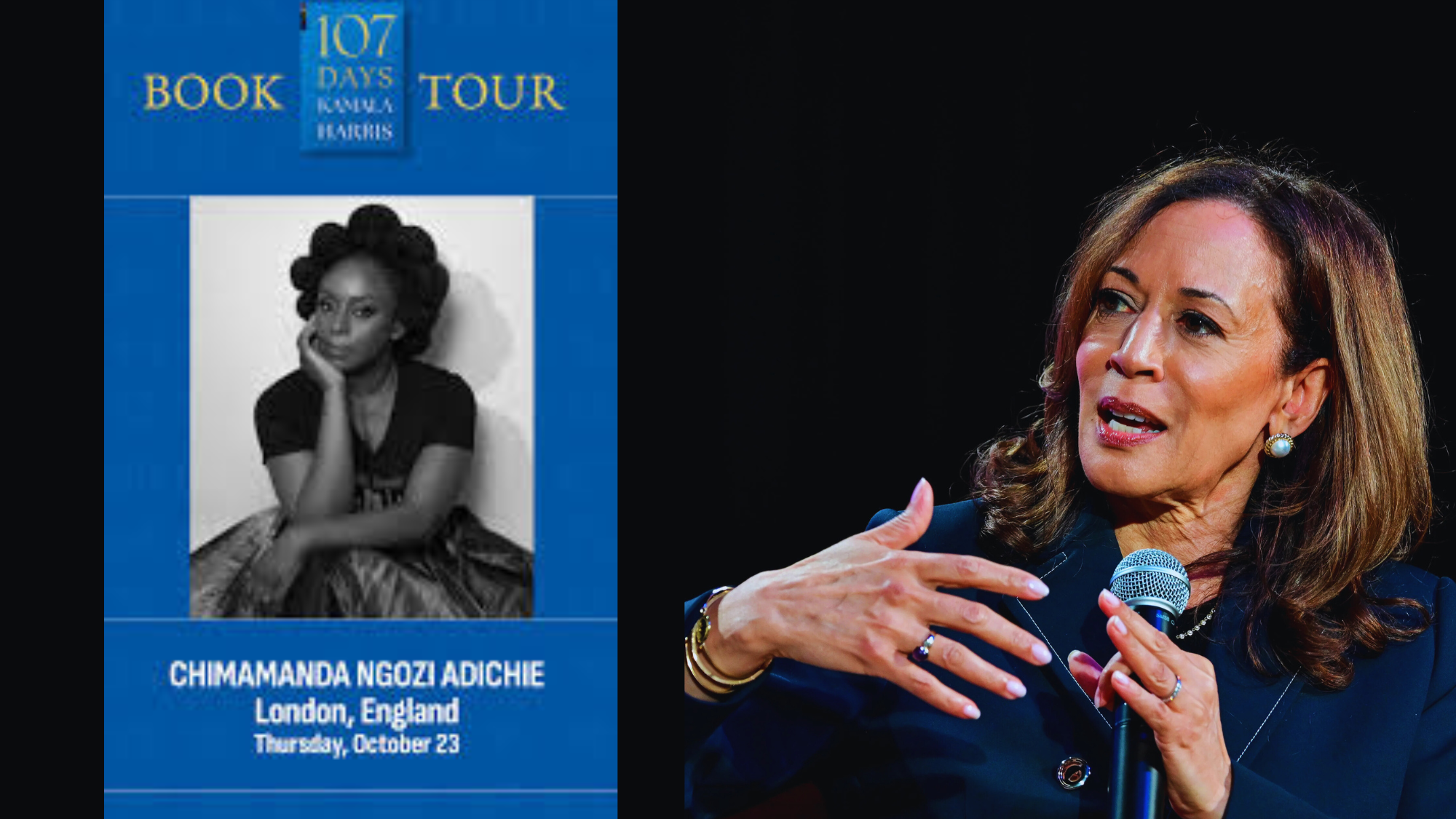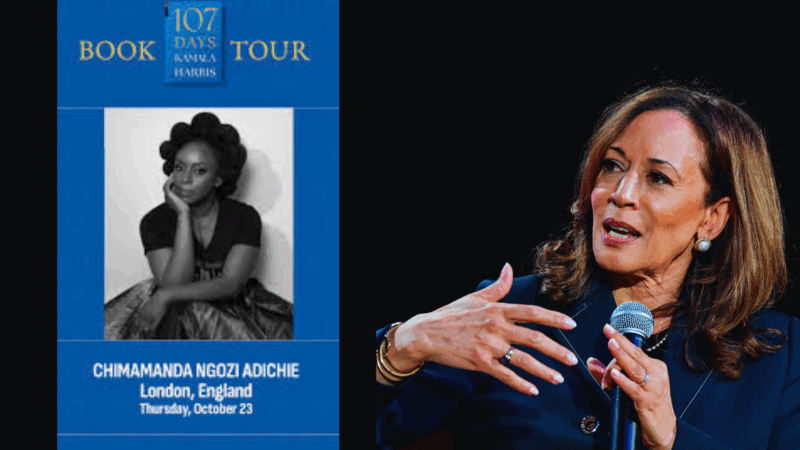
Tomorrow, October 23, U.S. Vice President Kamala Harris and Nigerian author Chimamanda Ngozi Adichie will share a stage at the London Literature Festival for what’s billed as ‘a conversation.’
On one side is Kamala, former U.S. Vice President who once ran one of the most closely watched campaigns in modern politics. On the other side is Chimamanda, a novelist and feminist voice whose words have travelled from Lagos to all over, shaping how a generation thinks about gender, power, and identity.
It’s a pairing that feels both unexpected and oddly inevitable. One built her influence through political grit; the other through literary skill, yet both women understand the weight of visibility and what it means to lead serious conversations.
Kamala’s Side of the Table
Kamala Harris has been on the road since late September, promoting her new memoir ‘107 Days’. It’s a retelling of her 2024 presidential run, which was short-lived, bruising, and deeply personal. For many Democrats still trying to make peace with the party’s loss to Donald Trump, the book reads like both a confession and a comeback plan.
I look forward to being in conversation with Chimamanda Ngozi Adichie on Thursday as part of the London Literature Festival. pic.twitter.com/FLQpthLLf7
— Kamala Harris (@KamalaHarris) October 21, 2025
In the memoir, Harris revisits what went wrong. She writes about loyalty, how she stood by the Bidens and how that loyalty was not returned. She admits the pressure of running a campaign while trying to distance herself from an unpopular administration, and for once, she lets readers in on the emotional cost: the exhaustion, the strain on her marriage, and the loneliness of being both the first and the fall guy.
@kamalaharris Thank you for welcoming the 107 Days book tour with such enthusiasm, Houston, and for the wonderful conversation, @Carlos_Eduardo_Espina ♬ original sound – Kamala Harris
Her tone on tour has been different, too, as seen in excerpts from TikTok. She’s less defensive, more reflective. The politician who once struggled to connect feels more human on stage, maybe because she’s finally telling her story without a teleprompter and without the noise of Washington. Maybe because, in her own way, she’s learning that vulnerability can be a kind of power too.
Chimamanda’s Side of the Table
Across from her would sit Chimamanda Ngozi Adichie, a woman who has built her career around using words to reimagine power. Her latest novel, Dream Count, is an exploration of desire, identity, and the struggle of integration in America; themes that sound nothing like politics until you realise they are.
For years, Chimamanda has balanced the art of storytelling with activism. Her feminism isn’t loud for the sake of volume; it’s precise and sometimes polarising.
Through fiction, she’s documented how politics moves through people, how love, grief, and migration can be political acts in themselves.
Her relationship with politics isn’t straightforward either. She has been outspoken about Nigeria’s social structure, especially the barriers facing women in leadership. She also writes from a place of emotional truth rather than policy. If Harris represents power by office, Chimamanda represents power through influence.
Read Also: Chimamanda Just Got a Mermaid Award, But What Does That Even Mean?
At first glance, Kamala and Chimamanda might not seem to have much in common. One writes speeches, the other writes stories. One lost an election, the other won the literary world. But put them on the same stage, and suddenly the distance between fiction and politics doesn’t feel that wide.
Both women have learned how it feels to be reduced, Kamala by headlines, Chimamanda by think pieces. Both have been called too much in spaces built to keep women contained, and both, in their own ways, have had to answer the same question: how do you stay powerful when the world decides your power is inconvenient?
Maybe that’s what makes this conversation something more interesting to look forward to. It’s not really about their books. It’s about what happens when two women who have spent their lives explaining themselves finally get to be in control of their own narratives.
They come from different corners, yet both know what it means to hold an audience, to command attention, to make people feel something. Policy or storytelling, both are fluent in persuasion. Tomorrow’s conversation might promise more than just small talk.








